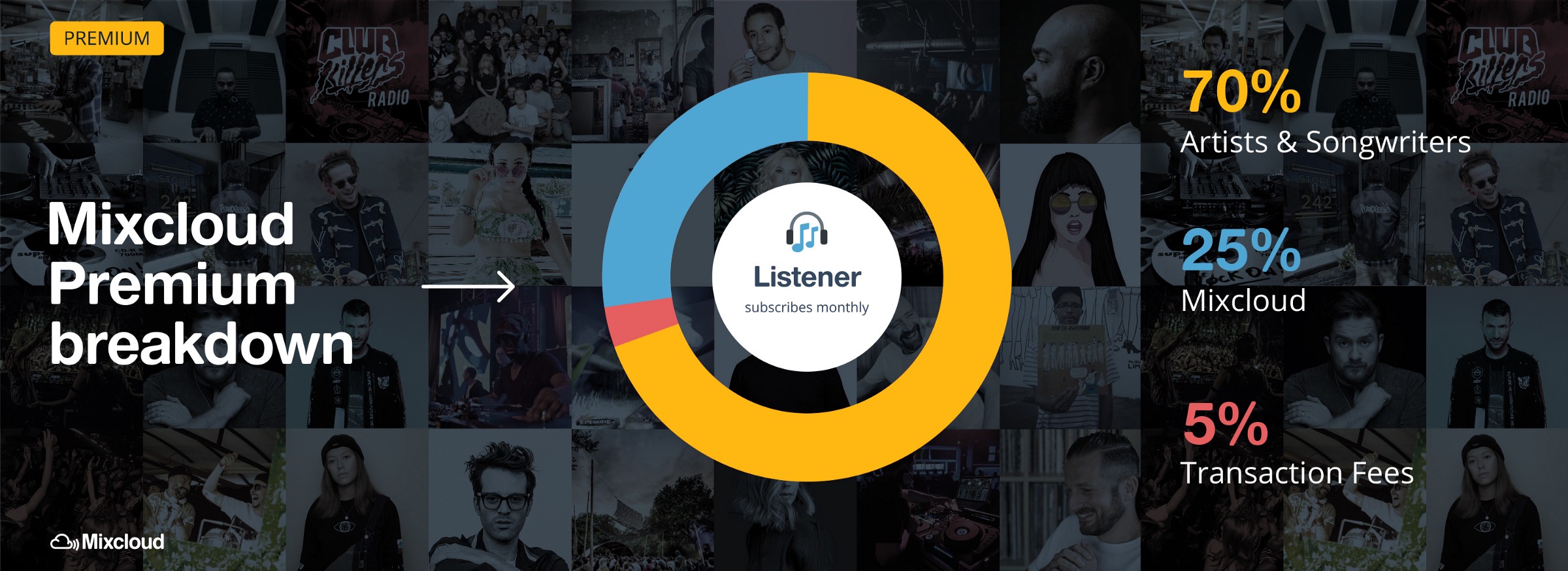At the end of July, Mixcloud posted a Medium article addressing their community and sharing a few fundamental changes that were forthcoming on the platform. In short, the new changes will mean less freedom of listening for unpaid, free listers – and more restrictions lifted for users who subscribe. It’s all with an aim to keep the service sustainable and legal.
Keep reading for our quick summary of what’s changed and why DJ should care.
What Will Change On Mixcloud?
Free listening isn’t going away – and the basic experience of sending a link to a listener and them being able to listen right away will almost always not change. Here’s what the new limitations are:
- Free listeners will only be able to seek forwards (not backward) while listening to a show.
- Free listeners will be able to listen to the same show maximum 3 times in a rolling two-week window.
- Free listeners will not be able to listen to shows that feature more than 4 tracks by the same artist or more than 3 tracks from an album (If you are not a rights holder).
Most of these limitations are directly tied to licensing agreements that Mixcloud has with rights organizations – which allow the platform to legally host works that include copy-written content in return for a fee. If you’re in the US, you’ve probably seen some elements of these restrictions already.
Mixcloud has found a way to lift those limitations: by getting listeners to pay more and subscribe. They first introduced subscription plans last December, and this seems like the natural next step. Here’s what the plans allow:

- For the loyalist fan who keeps coming back to specific creators:
By subscribing directly to an individual creator with Mixcloud Select, for a flexible monthly price set by the creator from $2.99, a listener can directly support the creator, listen to their channel without limits and receive exclusive rewards in exchange.

- For the generalist listener who listens to a bit of everything:
By upgrading to a Mixcloud Premium, our new $7.99 monthly subscription, a listener can access all public shows across the platform without limits.
Why These Changes
It’s not just that Mixcloud needs a sustainable revenue model to continue operating. They have done a lot of hard work to make sure their service is legal, and actually pays the rights-holders (and creators) that create the tracks inside of each show.
It’s expensive to do it right, and as they note in their letter:
“Today, the revenue that we make from advertising simply doesn’t come close to covering these costs”
Why should DJs care about what happens on Mixcloud?
While Soundcloud has always been a more prominent online user-uploaded content platform, Mixcloud has historically been the bastion of DJs and other creators (radio show hosts, podcasts) who regularly incorporate the works of other people in to their creations.
While a tool like Soundcloud might have more reach, Mixcloud has always been with creators first in mind – specifically the DJ community.





